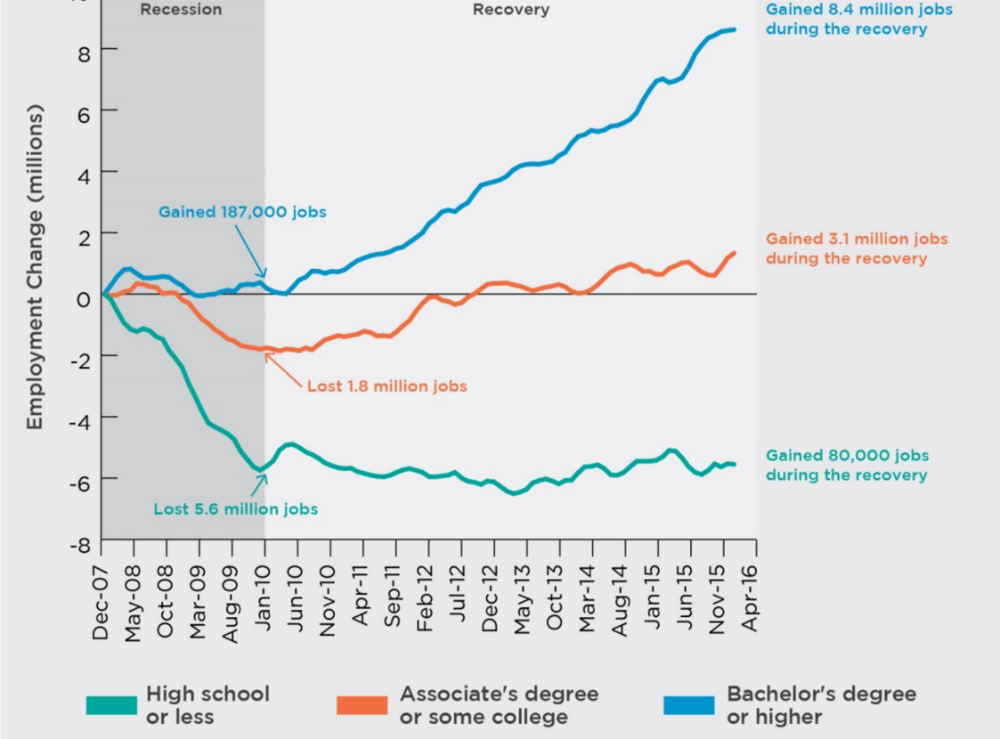A recent survey by the Economic Development Corporation of Utah found companies looking to relocate to Utah place high-skilled workers as the top factor in its decision to relocate to Utah. With 99% of jobs filled in today’s post-recession economy by college educated individuals, higher education is Utah’s primary economic engine—more important than all other factors including the state’s transportation infrastructure, its business-friendly regulatory environment, and its incentives programs. This comes from EDCUtah’s recently released 2016 Site Selector Perception Study—a survey of consultants who research different locations to best meet an organization’s facility expansion or relocation needs. Their perceptions of Utah can heavily influence whether they recommend an organization relocate to the state.
Qualified entry-level workers are most valued to relocating companies
Site selectors highlighted the young, educated workforce as Utah’s greatest asset—more than twice as high as the second-highest ranked asset. Not only did the respondents rank Utah’s educated workforce as its greatest asset, they also ranked the availability of a skilled workforce as the most valuable criteria in site selection:
“Site selectors’ perception of Utah’s pool of qualified, entry-level workers had the greatest impact on their likelihood to recommend Utah than any other factor, so better educating site selectors on this topic, while working to increase the size of Utah’s labor pool, may yield the highest increase in their likelihood to recommend the state.” (emphasis added)
Utah Strengths Ranked by Site Selectors
Source: EDCUtah
Qualified entry-level workers needed
Today’s economy requires qualified entry-level workers to be college-educated. 99% of jobs filled since December 2007 have gone to workers with at least some college education. For the college-educated, job opportunities during the recovery have been robust. However, workers with a high school diploma or less haven’t seen the same opportunities. Of the 7.2 million jobs lost in the recession, 5.6 million were jobs for workers with a high school diploma or less. This comes from a report published by the Center on Education and the Workforce at Georgetown University in its latest publication, “America’s Divided Recovery”, and found that jobs in the post-Great Recession economy have been demarcated by college education.
Since the recession, workers with a bachelor’s degree have added 8.4 million jobs in the recovery. However, workers with a high school diploma or less added only 80,000 jobs after losing 5.6 million jobs during the recession.
Job Change in Recession and Recovery – by Educational Attainment
Source: Center for Education and the Workforce
The ROI for qualified entry-level workers
The recession and recovery have hastened a long-term change in the composition of the American workforce. The Great Recession decimated low-skill blue collar and clerical jobs. The recession added primarily high-skill, managerial and professional jobs. For the first time, workers with a bachelor’s degree or higher make up a larger portion of the workforce (36%) than workers with a high school diploma or less (34%). Intuitively, college educated workers also captured most of the jobs that pay more than $53,000 annually for full-time, full-year and benefits such as employer provided health insurance and a retirement plan.


